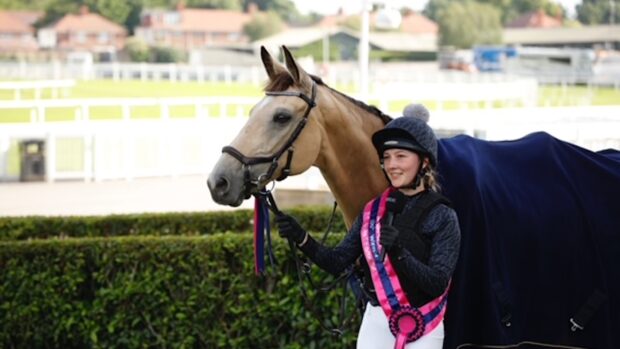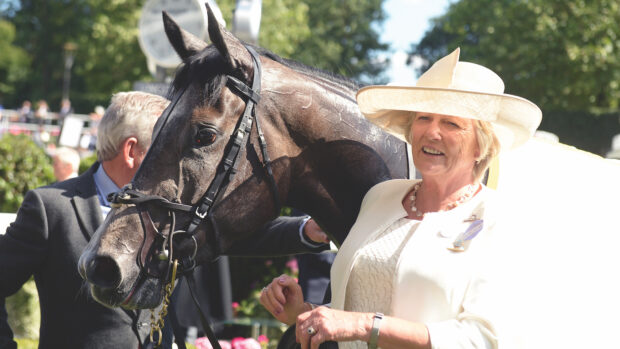Rodeny Powell and Flintstone IV
Owners: Rex and Marguerite Boucher
Statistics: 11yo 17.1hh bay gelding
Breeding: A 7/8 Thoroughbred by Alphabatim (USA)
Competition record: British Intermediate Champion 1995, 13th Badminton 1999, selected for British squad 1999, 3rd Badminton 2000, selected for the Olympics.
Rodney bought Flintstone from Graham Fletcher seven years ago. “I was looking for a four-year-old and at 17.1hh he was big enough to carry me, and it’s quite difficult to find ones that are big enough,” says Rodney.
“I can’t say that there was a point when I knew he was going to be a four-star horse as I think it just happens. But he won a lot as a six and seven-year-old so I hoped that he was going to be good.
“Badminton was obviously a real high. Flintstone needed to prove himself after Luhmuhlen [where they fell when in individual silver medal position], but because that was his only cross-country fault, I tried to put it to the back of my mind.
He felt good going to Badminton and I guess I had some good luck when others didn’t.”As far as the Olympics go, I suppose I’ve learned to handle failure better because I’ve experienced it more than success.”
Character: Rodney says that Flintstone is the easiest horse he’s ridden.
“You could trust anyone with him because he won’t do anything wrong. He will make someone a lovely hunter one day, but not yet!
He does buzz up a bit, but not like a pure Thoroughbred. He’s laid back, which I guess can be both an asset and a fault.”
Feed: “Flintstone is a big, fat chap and he eats any food that he can get,” says head girl Alex Franklin.
“We give him Gains Sports Mix, which is racehorse feed, plus alfalfa. We’ve tried a lot of feeds and find that Gains works well with our horses.
If we’ve got a problem horse they sort its feed out for us. It also seems to keep their top line on when they are getting light.”
Flintstone gets extra Vitamin E as Alex feels that if the food lacks anything it’s that. His feeds are increased to four times a day in the last few weeks before a major competition and electrolytes are added to his diet at an event.
Routine:
Flintstone currently does about two hours work a day as he is quite hard to get fit. He goes for a canter every third day, does a lot of hill work on his one-and-a-half hour hacks, is schooled one day and does canter work the following day. He is sometimes long-reined to loosen him because he’s such a big horse and he goes on the horsewalker most afternoons for 45 minutes.
“Flintstone does go out in the field, but we don’t leave him out too long because he gets too fat,” explains Alex. “He also does a lot more canter work than the other horses. They all need slow canter work, but he does double the amount.
Like Rodney, Alex is trying not to worry too much about injury. “Horses are horses. If you get too paranoid something ismore likely to happen.”


